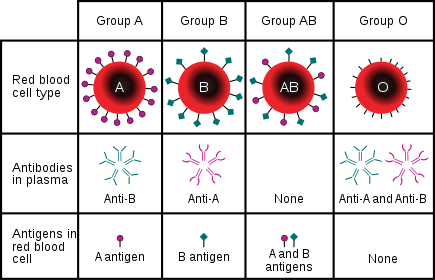As it is clearly known that everyone’s blood is consist of the same basic parts, there’s actually a lot of difference in the kinds of blood. We have eight different blood groups, and the group individual has is determined by genes inherited from parents.
Basic Elements of Blood
It is very understandable that many people have about 4-6 liters of blood. Everyone blood is made up of different kinds of cells that float in a fluid called plasma:
- Red blood cells deliver oxygen to the various tissues in the body and remove carbon dioxide.
- The white blood cells which destroy invaders and fight infection.
- The platelets help the blood to clot.
- The plasma is a fluid made up of proteins and salts.
There is blood different in human being as a result of the unique combination of protein molecules, called antigens and antibodies. Antigens live on the surface of the red blood cells. Antibodies are in the plasma. The combination of antigens and antibodies in the blood is the basis of the blood type.
The Different Blood Groups
Basically, there are four major blood groups and eight different blood types. They are referred to as the ABO Blood Group System.
- The blood group A has the A antigen and B antibody.
- The blood group B has the B antigen and the A antibody.
- The blood group AB has A and B antigens but neither A nor B antibodies.
- The blood group O doesn’t have A or B antigens but has both A and B antibodies.

There is also a third type of antigen refers to as Rh factor. Individual either have this antigen (meaning blood type is “Rh+” or “positive”) or not (meaning the blood type is “Rh-” or “negative”). Therefore, from the four blood groups, there are eight blood groups:
- A positive or A negative
- B positive or B negative
- AB positive or AB negative
- O positive or O negative
The Best Blood Groups to Donate
The group O negative red blood cells are considered the safest to give to anyone in a life-threatening emergency or when there’s a limited supply of the exact matching blood type. That is because type O negative blood cells don’t have antibodies to A, B or Rh antigens. People with O negative blood are referred to as “universal” red cell donors because it is believed they can donate blood to anyone with any blood group.